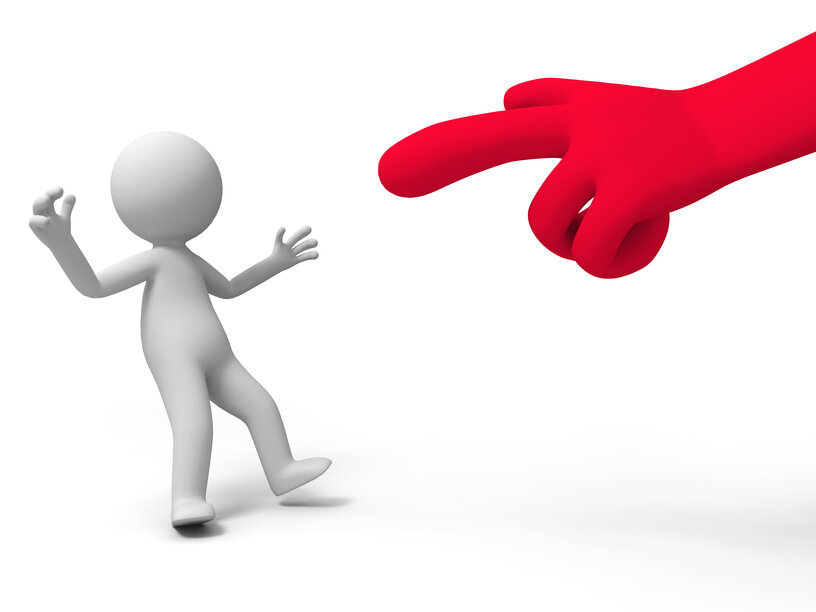
Forozan Asif Nakhai: In the criticism, some question and criticize the attitude, some ability and some behavior of the governments. All human beings have a low tolerance for hearing criticism of their attitude. In criticizing a person’s attitude, identity, personality, and life, the person’s life is questioned, so the other party is under severe pressure and probably takes a very aggressive position.
According to the news agency Online newsMohammad Reza Shaban Ali’s discussion on “How to Criticize”, the audio file of which was published on the channel of the School of Humanities, says: “It seems that although criticism has been discussed a lot, we still need to talk and think more about it. Let’s do it.”
He says: “Criticism in its general sense has been proposed in the sense of examining and proposing the positive and negative points of an issue, however, the word criticism is often used in a negative sense. When we talk about someone’s words, writings, and behavior, we want to point out their faults.
This lecturer of management topics, pointing out that “what is embedded in everyone’s mind and we constantly tell each other is that people should criticize, the other party should be open to criticism, and of course criticism is very good, but we must be careful if we do not know In what time, conditions and with what principles is the criticism presented, it is possible that the criticism, instead of correcting, actually hurts others, without having a specific result and effect.
Aggressive culture in Iranian society
Shaban Ali continues by pointing out that “whether we like it or not, like it or not, aggressive culture and competitive behaviors can be seen in our society” and says: “When it is observed that a person has achieved success, a person There are fewer who are happy. More people start looking for reasons, and how this person was able to grow, or why he was able to go to a good school. We usually attribute our failures and mistakes to external issues, and the failures and mistakes of others to the people themselves, and that they should be responsible for themselves.”
He added: “Competitive culture has caused everyone to be higher than me. Tazeem is not a constructive criticism towards him. Criticism, which remains like a double-edged sword, can be very useful or very harmful, it seems that there is still room for criticism in society to be used in a more positive and constructive way.
In addition to revealing another mistake, criticism is also self-revealing
Shaban Ali went on to discuss a very important feature of criticism, he said: “The first very important point is to remember that when I am criticizing someone or an organization and bringing up its negative points, regardless of whether my intention is positive or Negatively, regardless of what I’m aiming for, my review first reveals a lot about me. Therefore, I should make sure that the review first gives information about me. In other words, I have a leak of information and a leak of personality.
He then pointed to an example and said: “When I say that a certain person expressed himself a lot in the meeting, maybe I feel that he missed the space for me. A person who feels that his participation in a meeting is high, does not feel the presence of others. A person who says that so-and-so was talking to me from a top-down position has some concern to see what they are talking about, a person who sees his own position from above does not really understand what they are talking to him about. They talk from top to bottom. Many of the things we do, rather than expressing our opinions, may express our complexes.
This management lecturer went on to discuss “the first rule about criticizing” and said: “When criticizing, let’s think that before talking to others, I should think to myself, what is the root of this criticism?” What information does this review reveal about me? What complexes and opinions does this criticism show? Is the criticism going to help the other person, or is it supposed to help me calm down and vent? If I feel that this criticism is more destructive for me than it is constructive for the other party, maybe it is better not to raise such a criticism.”
Why are cash damages increasing in Iran?
This lecturer of management topics went on to raise the question that “what happens when a sharp edge that wins criticism becomes much stronger and its damages are much greater than its constructive part” and said: “To answer this question, one of the important discussions In the field of culture, the discussion is collectivism and individualism. Collectivism means how much we give a group or society the right to comment on the individual lives of its members. On the other hand, individualism in the sense of how much right a person has to decide for his personal life? It is not possible to say which one is good, collectivism or individualism? Rather, we can only look and learn descriptively.”
He added: “Our society is a society in which the contribution of collectivism is strong and its effects are still there to a large extent, therefore, we have many characteristics of collectivist societies. In collectivist societies, if a person wants to get a dress with a suitable model, to a large extent, people around him in the family, work environment, even passers-by give themselves the right to comment on it. We cannot wear every model in every color we like. “Society considers itself entitled to give an opinion, this situation is also the same in the choice of lifestyle, academic field, color of shoes and car.”
Shaban Ali then addressed individualistic societies and said: “In contrast to societies where individualism is widespread, people feel that they have greater privacy. The discussion of collectivism or individualism is not only a political discussion, but a cultural and very big discussion, it is completely social, which has very long roots and usually changes gradually over decades and centuries. In the collectivist culture, people have a very large set of judgments and presuppositions, a large amount of dos and don’ts, which are in the subset of parental culture and not adult culture.
Talking to another not as a taste but as a prescription
Shaban Ali further points out that “when people talk to the other party, they usually do not speak as a matter of taste, but as a prescription” and emphasizes: “When I find fault with your clothes, I forget. that “I” don’t like the way you dress. I say that the style of clothes you are wearing is not good. For this reason, in our society, criticism has a flavor of judgment in its premise, and that judgment is part of logic, part of social custom, and part of the right that the society gives itself to apologize to each and every one of its members. , give an opinion, and this causes the spread of violence. Perhaps the culture of criticism and criticism in societies where collectivist culture is more common than individualism should be examined a little more seriously.
He added: “We must practice and learn when we have a criticism about the other party, we must immediately, and as much as possible, add the presuppositions that are in our minds to our wording. For example, if in an important organizational meeting, a member of the organization attends the meeting in sportswear or jeans, which I feel is not reasonable, because I think he should attend the meeting in a suit or formal dress, if I want to say that I wish you would come in formal clothes, it would be good to raise some assumptions before that. I suppose you know that in our industry they still think that a suit is the appropriate attire to attend a formal meeting. Of course, apart from the meeting, I wear formal clothes when I go to a friendly party, maybe that’s the reason why I don’t feel good. But honestly, when I looked at the meeting, I said maybe if it were me, I would have come with a different outfit.”
The language of criticism means flexible language, language of doubt, language of preference and constructive movement
This lecturer of management topics added: “The more we can make our discussion softer, the better.” In other words, they say that the language of criticism should be a flexible language, a language of doubt, and a language of preference. When we criticize, we don’t talk about the wrong and right behavior of the other party, we talk about what we prefer. And if the other party hears our criticism, it does not mean that he is open to criticism, it means that he has given us this space to talk about our own taste and give an opinion. Let’s say what was our preference? If this issue is in our mind, our tone and attitude will probably change, and ultimately, the result of our criticism will be different. Because with this method, instead of destruction, we move towards being constructive.”
Three important layers of criticism and comments
Shaban Ali continued to discuss the nature of comments, which are divided into three important layers. Mentioning the axes of these three layers, he went on to explain each one. He said: “Usually, comments and criticisms are divided into three layers:
Attitude layer
Ability layer
behavior layer
He added: “Suppose I go into the bank, and I have a turn, I am waiting, and suddenly I see several people who I know come and go to the counter without a turn, and the other party is doing their work because they are acquaintances. they start Now I want to criticize this behavior. I will probably go to the head of the branch or to the same person and present my opinion in the following three ways:
1- In the attitude layer, I question the other party’s point of view. I would probably say something like this: Yes, it doesn’t matter to you, because this gentleman is your friend and… or his number is a very large number in your bank, you don’t see us as customers anymore, we are a bunch of sheep. Your expression is so sharp in the attitude layer. Or it may be softer, in this way: “I think your bank makes a difference between retail customers and large customers.” And we don’t take retail customers seriously.” You can see that from the sheep to the small and large customers, there is one concept, and that is that I am questioning the attitude of the branch manager and the employee behind the counter.”
He pointed to the second layer and said:
“2- The other layer is the ability layer. Suppose I say to the head of the branch that “Yes, Mr. or Mrs. So-and-so, it is clear that you have a clear attitude, you would like to be customer-oriented and have a good attitude, but you can’t, this is not just a matter of slogans, these are training, forces A good person wants a pleasant and well-trained employee, you could not do these things, but you yourself are calm and dignified. I think I am speaking softly. In my opinion, I have not raised anything special in the attitude layer, but I am raising the capability layer. You know that customer orientation is good, your view of customer orientation is positive, but you don’t have the ability to implement things in a customer oriented way.
Shaban Ali then pointed to the third layer:
3- The third layer is the behavior layer. I say, “It’s strange to me, your behavior and the slogans of the bank are also clear, which is based on customer orientation, order, order, the people behind the counter are not normal people, I don’t know what is going on, that I am a customer I see that there is discrimination in behavior. Other people come and are prioritized without having a turn.” In this type of criticism, you can see that I have confirmed the attitude of the other party, I have also confirmed their capabilities, but I have criticized their behavior.”
The weight of bearing criticism on attitude towards criticism on capability and behavior
Shaban Ali mentioned that “we see in the general criticism of the ruling system established in different countries, it is more difficult to tolerate the criticism of the attitudes of the governments than the criticism of some capabilities and also their behaviors” and said: “Tolerance in hearing the criticism of the attitude , it is hard and few. As if, when I question your attitude, I question your identity, character, and life. Therefore, the other side is under intense pressure and probably takes a very aggressive position. But when we criticize the capabilities, which is a lower layer. “It hurts less, and when we question the behavior, it’s probably easier for the other person to accept.”
He added: “Let’s practice, when criticizing, as much as possible, talk about ability instead of attitude and behavior instead of ability.” If I tell my wife that you see me as the fat man in this house, or if a man says that you see me as the ATM machine of the house, this criticism is in the field of attitude. If I tell my wife that you want the home environment to be peaceful, but you know, go read a book, I’m trying to say that your attitude is good, but you don’t have the ability. But the best thing is to say that you like the home environment to be calm, I have seen, you have read things, and sometimes you raise issues in family discussions, but the behaviors you do are not the things that You bring up.”
In the end, this management school said: “I am not saying that this is a very sweet speech, it also has elements of bitterness, but the pain and suffering that people hear from behavior criticism is much less than criticism on the field of capability and ultimately attitude. . In the conversations they have with others, people can check how many percentages and what share of their conversations and criticisms are in the field of attitude, ability and behavior.
Read more:
The messages of Faezeh Hashemi’s letter about relationships inside the prison
Shah to Moghadam, the head of the Program and Budget Organization: You are talking nonsense again / the rule of fear over specialized topics / the humiliation of the result of talking to the Shah about the country’s priorities
Farastkhah, Rahmanian, and Mirzaei’s warning about the threats to…
Mohammadi: Without the presence of ethnic groups in power, the alliance will not be formed / Doctors should learn from South Korea and Taiwan for the development of Iran / Political Islam needs all-round modernization
Why were 731 banks attacked in the events of 2018?
Midari’s narration of security requirements in Iran / without empowerment..
216216
منبع: www.khabaronline.ir



